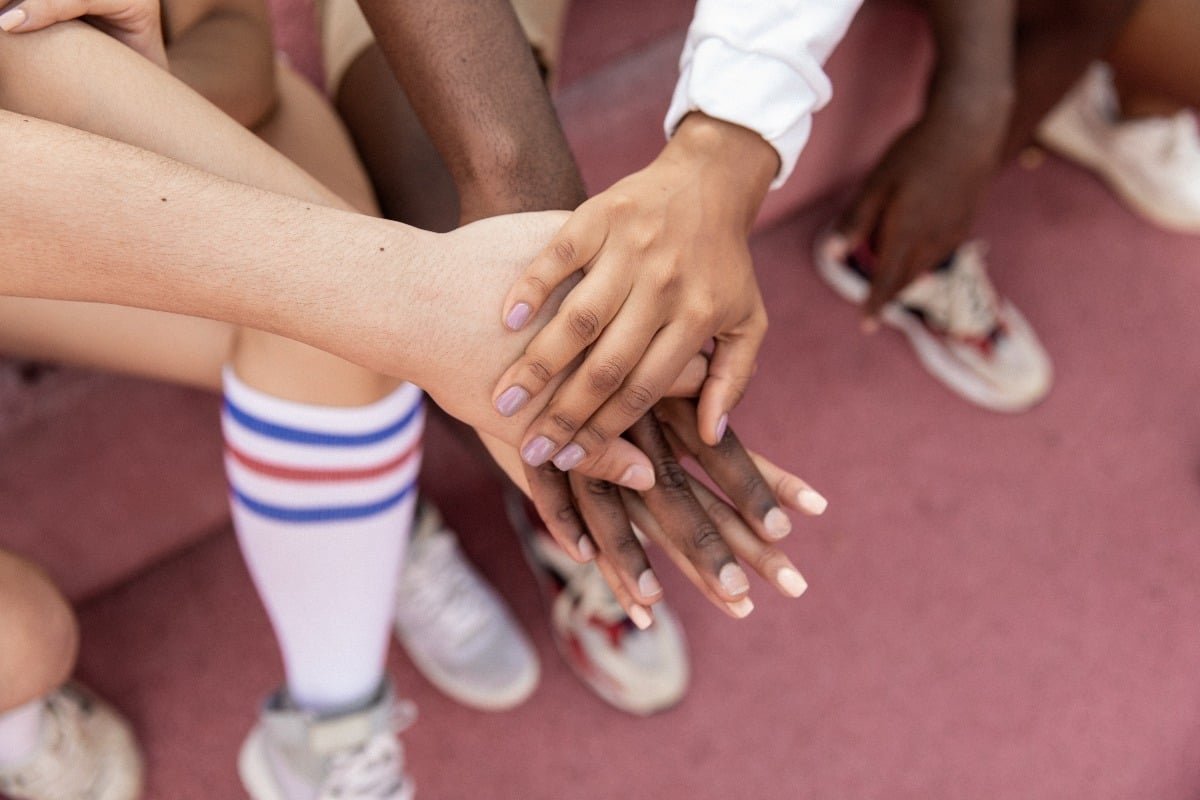
Building a healthy community is often challenging for teens who struggle with addiction and mental health disorders. However, friendships and community are essential in supporting teens’ mental health and helping them learn how to build healthy relationships as an adult.
By learning to communicate effectively and build strong bonds of friendships, teens can heal from mental health issues and addiction. However, communication and building friendships are not easy skills. Teens who are struggling with addiction and mental health disorders can work with a treatment center to improve these skills and reap the benefits of community as a teen and in the future.
Challenges of Building Community
When teens are struggling with mental health challenges or addiction, it is difficult for them to be a part of a healthy community. Mental health and addiction are extremely isolating. For teens, the symptoms caused by mental health difficulties and addiction lead to their experiences in life being very different from many of their peers. As a result, they can feel like they are out of the loop or don’t fit in with those around them.
Additionally, difficulties with mental health and addiction can be embarrassing for teens. Feelings of shame can make it difficult to acknowledge and open up about their experiences. However, being open with others is a crucial part of building relationships. Therefore, even if a teen is spending time with a community, they need to learn to be open and form healthy bonds.
How Adolescents Benefit From Community
Adolescents who struggle with their mental health or addiction commonly isolate. However, there are many benefits of them learning to build a healthy community. It can help in the healing process from mental health disorders, improve their feelings of self-worth, and set them up for success in adulthood.
Healing From Mental Health Issues
There are many challenges in adolescence, and many teens experience mental health issues, such as anxiety, depression, and other disorders. Healing from these mental health issues is not simple. However, having healthy close friendships and a community can be beneficial.
Researchers have found that adolescents with solid friendships have a decreased risk of depression and anxiety by early adulthood. It is important to note that close friendships do not mean having a huge group of friends. Rather, such friendships indicate that the relationships are strong and healthy bonds. Research suggests that when adolescents prioritize these close friendships, they are better prepared to cope with the stress in early adulthood.
Improving Self-Worth
When teens feel lonely and isolated, they often feel bad about themselves. Research indicates that teens who lack community and friendships have decreased self-worth. This is particularly problematic for adolescents who are struggling with their mental health or addiction, as they increase their feelings of shame. By improving their community and friendships, teens begin to improve their self-worth and see themselves as valuable.
Learning Communication Skills
Having good communication skills is very important for people at any age in order to build relationships, work together, and solve problems. However, communication is a skill, something that can help teens decrease loneliness and build genuine friendships.
Adolescence is an important time for development, including cultivating communication skills. When a teen builds a community, they can practice how to create and maintain friendships. While they may make mistakes, it is an ideal time to learn how to solve problems, compromise, and work with others.
Developing these skills as a teen will help them as an adult in numerous ways. It will help them to maintain positive personal relationships and build connections in the workplace and other settings.
Decreased Risk of Addiction
Many teens who struggle with their mental health use drugs and alcohol. Long-term use of drugs and alcohol can result in physical dependency and emotional patterns of addiction. Researchers have found that teens with better communication skills have a decreased risk of substance abuse. Therefore, by building a community and improving communication skills, teens are less likely to develop substance use disorders (SUDs).
Learning to Build a Community
Being part of a community is essential for teens. However, building and maintaining friendships and community take effort and social skills. For teens who struggle with mental health issues or addiction, these skills are often underdeveloped. However, teens can learn how to effectively build a community.
By working with a mental health care professional or treatment program, teens can improve their social skills. This involves working with a counselor to solve individual issues and participating in group activities that are supervised. In this setting, teens can learn new skills and practice them with others. As they return to life after treatment, they will be more prepared and have a toolbox of social skills to use as a teen and later as an adult.
Many teens who struggle with addiction and mental health disorders lack a solid community. However, being a part of a community and learning to form healthy relationships can help teens heal from both mental health issues and addiction. By learning improved social skills, teens have decreased risk of addiction, improved mental health, and a better sense of self-worth. At Sustain Recovery, our programs help teens to build better communication skills. Our programs are an integrated balance of clinical interventions, 12-Step recovery, and holistic care. To learn more about our programs and how they help teens improve communication skills and build community, call us today at (949) 407-9052 to speak with a staff member.






